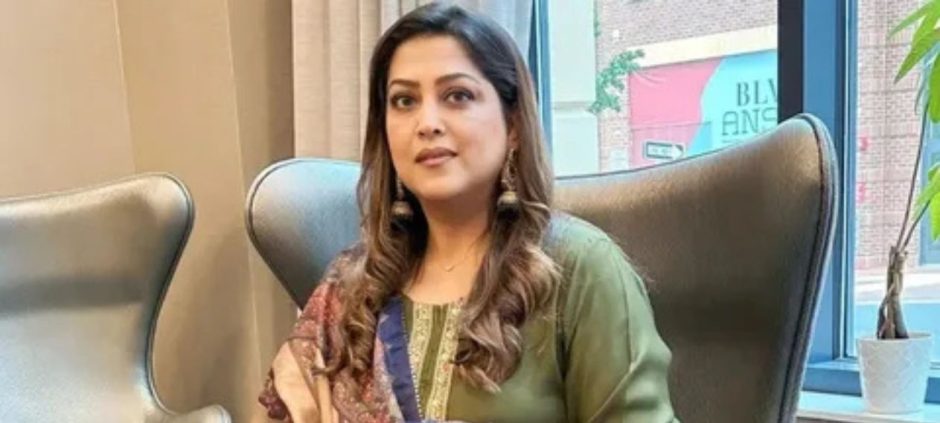Ever noticed how your heart tightens when Fazila Qazi plays a worried mother or a conflicted parent on screen? For many Pakistani moms, her characters feel less like TV and more like a mirror, a familiar reflection of their own fears, hopes, and unspoken worries.
Fazila Qazi: A Voice for Pakistani Mothers
From her very first appearance, Fazila Qazi has had an uncanny way of portraying maternal emotions with authenticity. Her roles are not just supporting arcs; they are the emotional backbone of many Pakistani dramas. Whether she’s a mother hiding sadness behind a smile or a parent trying to bridge gaps with a rebellious teenager, her performances resonate deeply with Pakistani mothers who see a part of their reality in her.
Many moms watching her feel understood. Her dialogue, body language, and silent moments speak volumes about the struggles of raising children in a rapidly changing society. In a culture where “good parenting” is often judged, Fazila’s characters validate the unspoken sacrifices that mothers make every day.
How Fazila Qazi’s Roles Highlight Communication Gaps
One of the most powerful aspects of Fazila Qazi’s roles is how they shine a light on communication gaps in Pakistani families. These dramas often center around generation clashes and the silence that creeps in at the dinner table.
Here’s how she brings that to life:
Unsaid Expectations: Her characters frequently deal with children who don’t meet the expectations she grew up with, academically or morally. Mothers watching understand the heartache when dreams go unspoken and misunderstood.
Fear of Rebellion: Many of her roles include scenes where parents worry about their teen’s independence, friendships, or modern influences. That fear, beautifully portrayed, taps into a universal worry among Pakistani parents.
Bridging the Gap: Sometimes, her characters try to mend things, but the method is flawed. Instead of open conversation, what follows is nagging, guilt-tripping, or emotional blackmail, showing how the lack of healthy communication can backfire.
Watching these dramas, mothers see reminders of their own home: the quiet frustration, the moments they wish they had said “I understand,” and their longing for a heartfelt connection with their children.
From Classic Serials to Modern Storytelling
Over the decades, Fazila Qazi has evolved as an actress, but also as a symbol of parental emotion in the Pakistani entertainment scene.
Classic Serials
In earlier dramas, she played more traditional roles: an obedient wife, a gentle mother, the stoic matriarch. These roles represented the ideals of an older generation.
Modern Storytelling
More recently, her characters are layered. She’s not just a supportive mother, but a woman with her own dreams, fears, and flaws. Her characters now engage with modern issues: mental health, teenage independence, and generational rebellion.
This transition mirrors the growth of Pakistani television as well. As storylines become more realistic, her roles have become more nuanced. She’s no longer just a mother figure; she’s a bridge between old and new, tradition and change.
Why Her Characters Feel So Real to Pakistani Moms
What makes Fazila Qazi’s portrayals especially meaningful for mothers in Pakistan? A few reasons stand out:
- Relatability: Her characters experience real, everyday struggles, financial worries, sibling conflicts, and societal pressure, not just melodrama.
- Vulnerability: She doesn’t hide pain behind perfection. Her mothers cry, shout, and even make mistakes. That honesty makes her relatable and human.
- Empowerment Through Empathy: By showing emotions so openly, she reminds mothers that it’s okay to be vulnerable. Her performances validate their feelings.
Her roles are not isolated; they connect to the broader cultural conversation about parenting in Pakistan and the generational shifts that are transforming families.
Parallel to Other Generational Icons
Just as Bushra Ansari has been celebrated for her contribution to Pakistani television (she was recently honored by the UK Parliament for her outstanding work), Fazila Qazi represents another pillar of strength and emotion in the industry. In fact, the way these veteran actresses address social issues through their characters shows how Pakistani television uses storytelling to heal wounds, start conversations, and build empathy across generations. You can read more about Bushra Ansari’s honor here.
A Heartfelt Reflection
Fazila Qazi isn’t just acting, she’s channeling the hopes, fears, and silent prayers of countless Pakistani mothers. Her ability to portray communication breakdowns, parent‑teen conflicts, and emotional resilience makes her a beloved figure both on and off screen.
If you’ve ever seen Fazila Qazi play a role that felt like it was written from your life, share it in the comments below. And if you want to dive deeper into actress profiles like hers, stay tuned, we’ll be exploring more iconic voices from Pakistani television soon.











